JOINT BASE LEWIS-MCCHORD, Washington — During its new Mobility Guardian exercise here, Air Mobility Command turned its focus to growing junior aircrews by putting them through tough, realistic training and giving them the opportunity to work alongside other units and militaries — just as they would on the battlefield.
Mobility Guardian, which kicked off the first week of August, replaces the command’s Rodeo competitions, which pitted top airmen against each other — and international participants —in a friendly competition.
The last one was in 2011, and since then the Rodeo has been discontinued.
The reason for the shift ties back to the role AMC and its aircraft and crews play in the fight overseas.
In the past, Air Mobility Command served in a supporting role in both training exercises and deployments by carrying ground personnel and refueling combat aircraft.
With the changing global landscape, however, airlift has emerged as a core ability in various missions, and the command wants to hone those skills.
More than 3,000 service members, 40 aircraft and 20 international partners joined the two-week exercise that included a wide variety of war requirements.
The first week focused on joint forcible entry, airfield seizure, assault zone landings, night-vision operations and airdrops. Those operations allowed troops to transition to the focus of the second week: sustainment.
RELATED
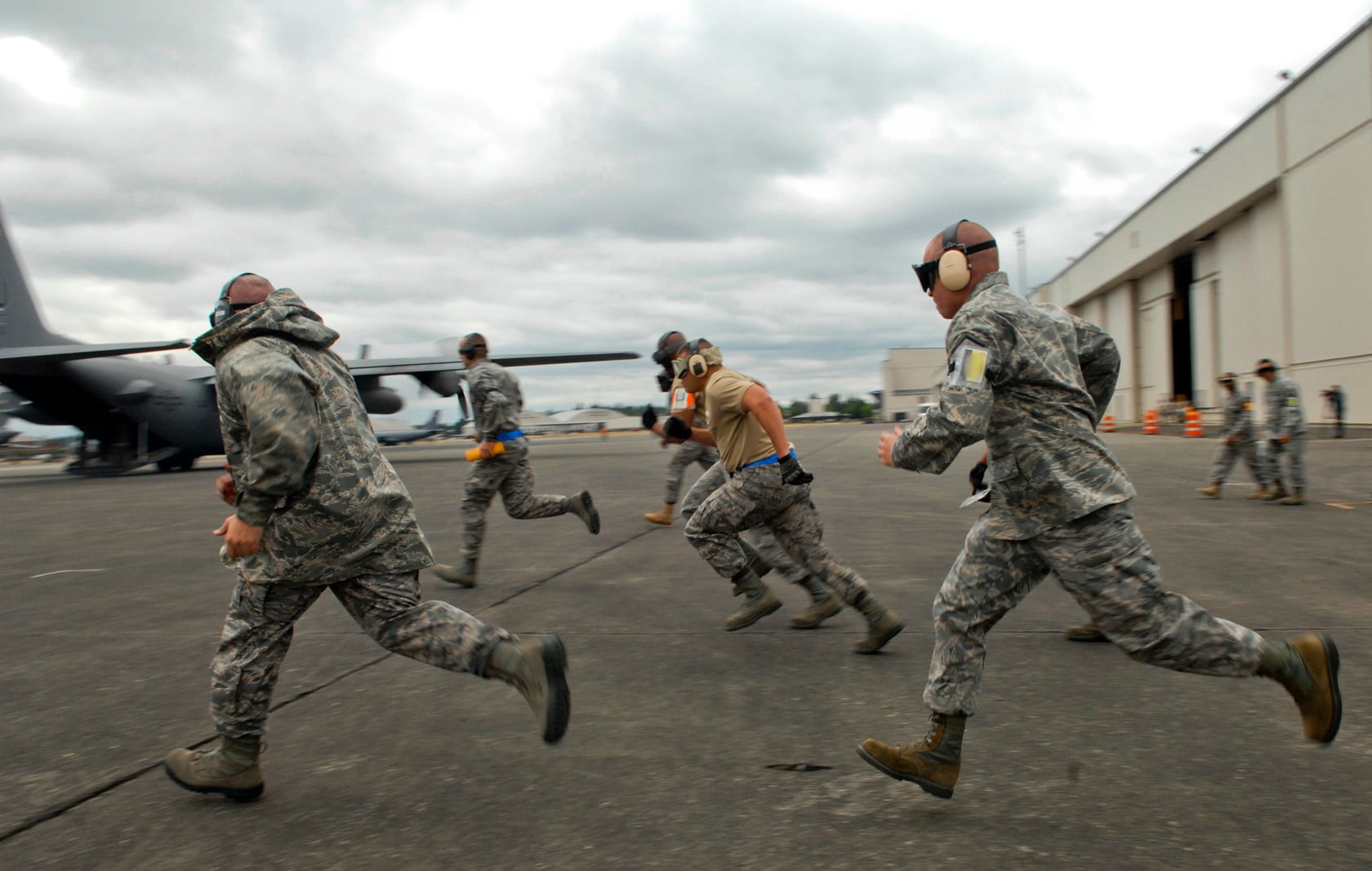
The participating aircraft include C-130s, C-17s, C-5s, KC-10s and KC-135s, as well as F-15s and A-10s.
On Aug. 2, more than 300 paratroopers from the 82nd Airborne Division at Fort Bragg, North Carolina, jumped from more than 10 C-130s to seize an airfield.
From there, contingency response groups opened an air base with equipment airdrops to support the humanitarian training efforts on the ground.
Brig. Gen. Brian Robinson, AMC’s director of operations, said Mobility Guardian differs from the Rodeo competitions because that was all about winning.
“This time around, because of the complexity of the exercise and mission tasks and desired learning objectives, the commanders aren’t so worried about winning,” said Robinson, who served as the exercise’s joint task force commander. “They’re more concerned about learning.”
For Rodeo, units were motivated to send “the very best because you wanted to bring the trophy back to your base,” he told Air Force Times.
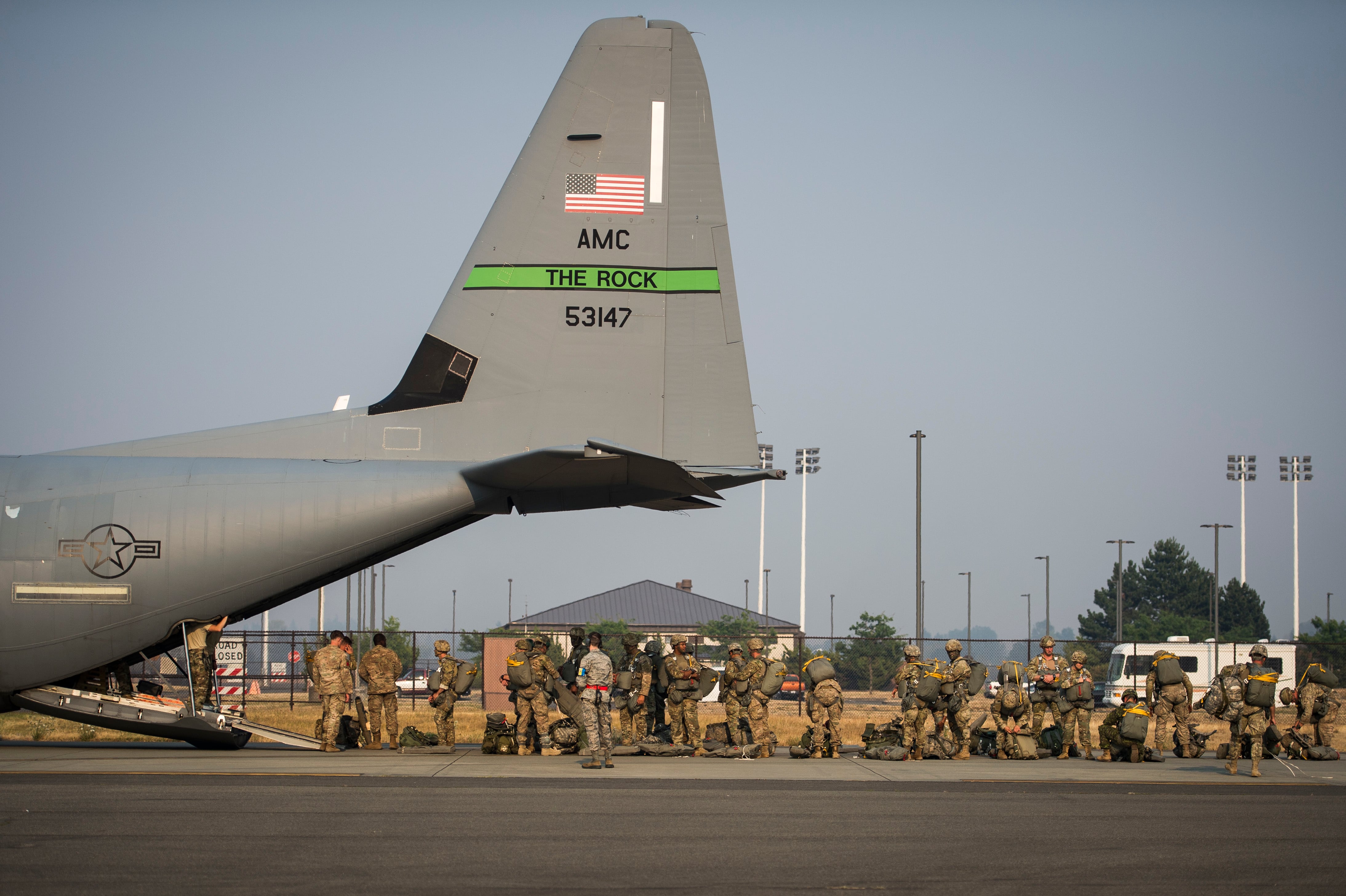
GAINING EXPERIENCE
For Mobility Guardian, the focus was on training junior crews.
“They’re going to send instructors with their crews because the scenarios are complex and you need someone who’s experienced, but they can also send a more junior first pilot or a more junior co-pilot,” Robinson said. “Some haven’t even deployed yet.”
Airman 1st Class David John-Lay, a KC-135 maintainer who’s been in the Air Force for a little more than one year, said he didn’t expect to be picked to participate in the exercise.
“This is something that is very high-paced, and I thought they would pick more experienced people,” said John-Lay, who’s assigned to the 100th Maintenance Squadron at Royal Air Force Mildenhall in the United Kingdom.
John-Lay, who said his unit thought it would be good for him to experience an exercise of this magnitude, said he’s there to learn as much as possible.
“It’s definitely good to be in this environment,” he said. “When it’s a real-life situation, I can approach it better. I’m definitely looking forward to having an edge on people who don’t experience this high-tempo type of maintenance.”
Lt. Col. Jeremy Wagner, the exercise’s director, told Air Force Times that the focus has been to give the crews the most realistic training so they’re better capable of fighting the nation’s wars.
RELATED
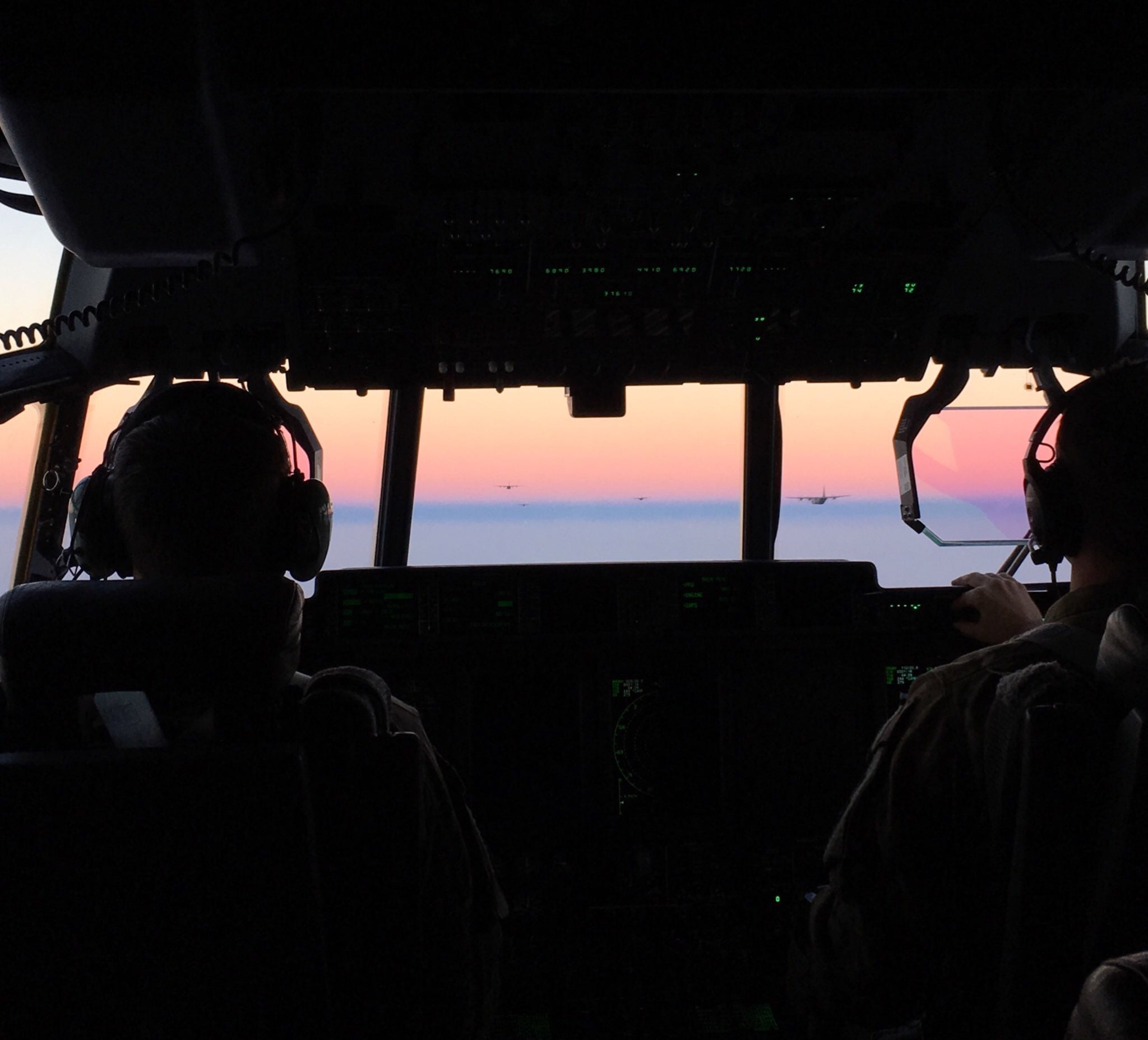
The exercise incorporates all of Air Mobility Command’s assets, and the planning included input from multiple units.
“It’s kind of unprecedented how we’ve brought folks from so many different units together,” Wagner said.
Airmen were asked what the perfect exercise for their unit’s particular aircraft would look like, and Mobility Guardian planners incorporated their feedback.
“It’s very, very meaningful to have a scenario behind [the exercise] because when we go to war, we go to a conflict where there’s a purpose,” Robinson said. “Where there’s jointness in that is where we want to come together and make it meaningful for us.”
An example of that is from the joint forcible entry exercise that crews flew in during the first week of the exercise, when paratroopers were airdropped to seize an airfield.
The C-130s practiced flying in formation with other C-130s and C-17s, and the paratroopers were able to train in a new setting.
“They were happy to be jumping somewhere else because they know Sicily Drop Zone [on Fort Bragg] like the back of their hand,” Robinson said.
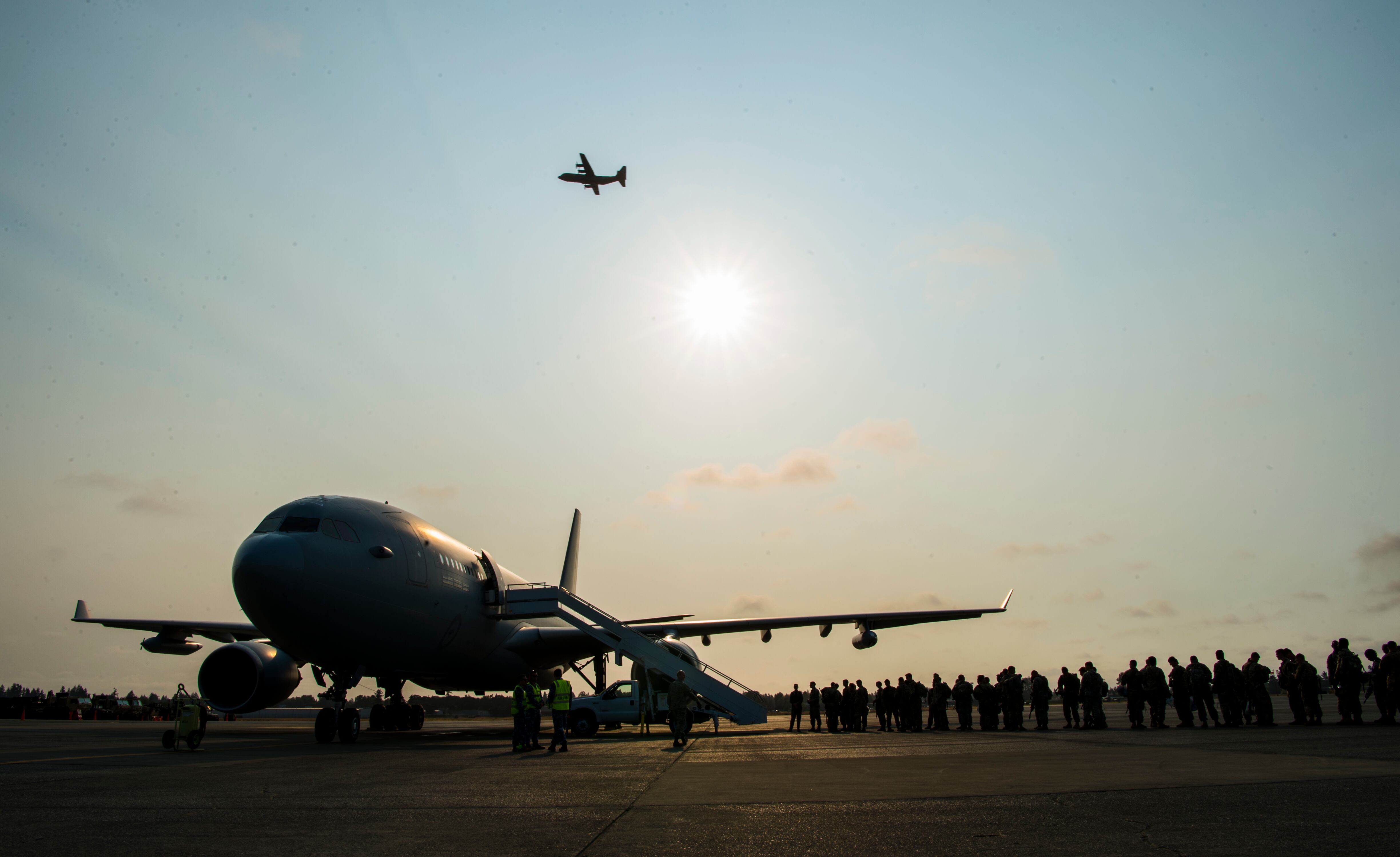
INTERNATIONAL PARTNERS
Air Mobility Command has never seen this level of international participation in its exercises before, Robinson said.
The exercise includes participants from Australia, Belgium, Brazil, Canada, Colombia, France, New Zealand, Pakistan, the Republic of Korea, and the United Kingdom.
Observers included Argentina, Austria, Bangladesh, Gabon, Germany, Japan, Kazakhstan, Philippines, Senegal, Spain, Sweden, Thailand and the United Arab Emirates.
RELATED
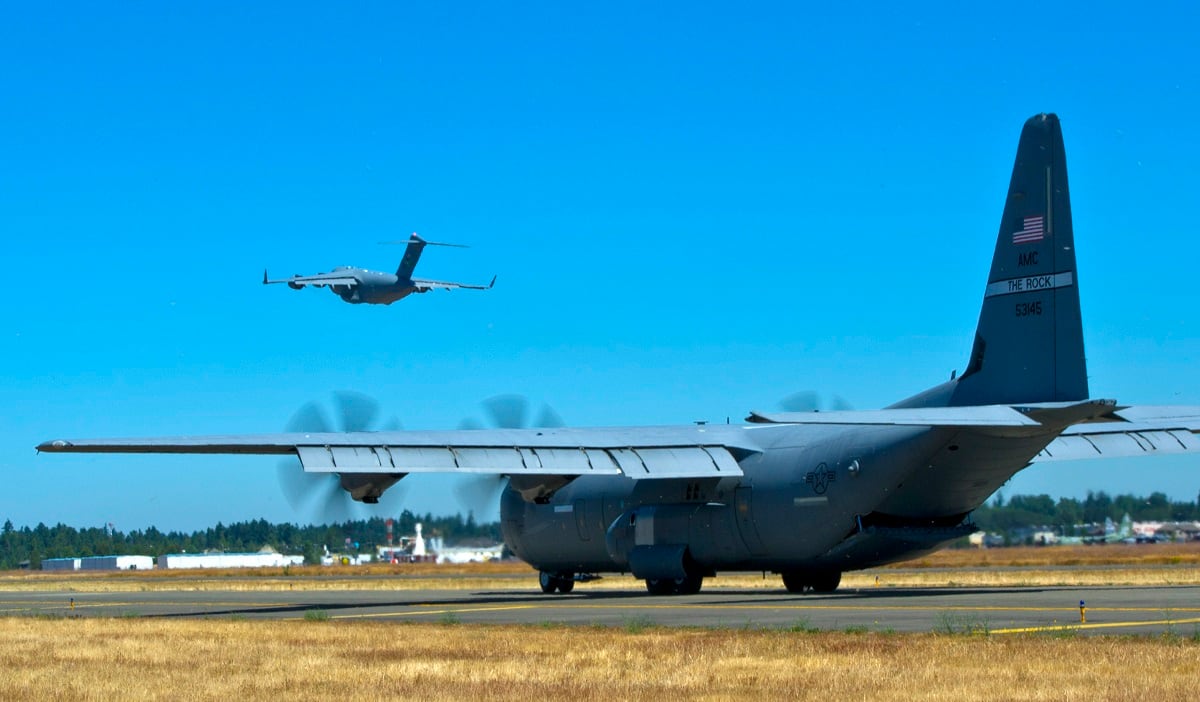
“If you look around the world today, there are other countries who have begun to appreciate the need for tactical strategic mobility the way we have for a long time,” Robinson said.
Those who can afford to purchase fleets like the ones in the United States are purchasing more tankers, he said, which gives the ability to sustain a presence in a certain region or project their forces where they need to very quickly.
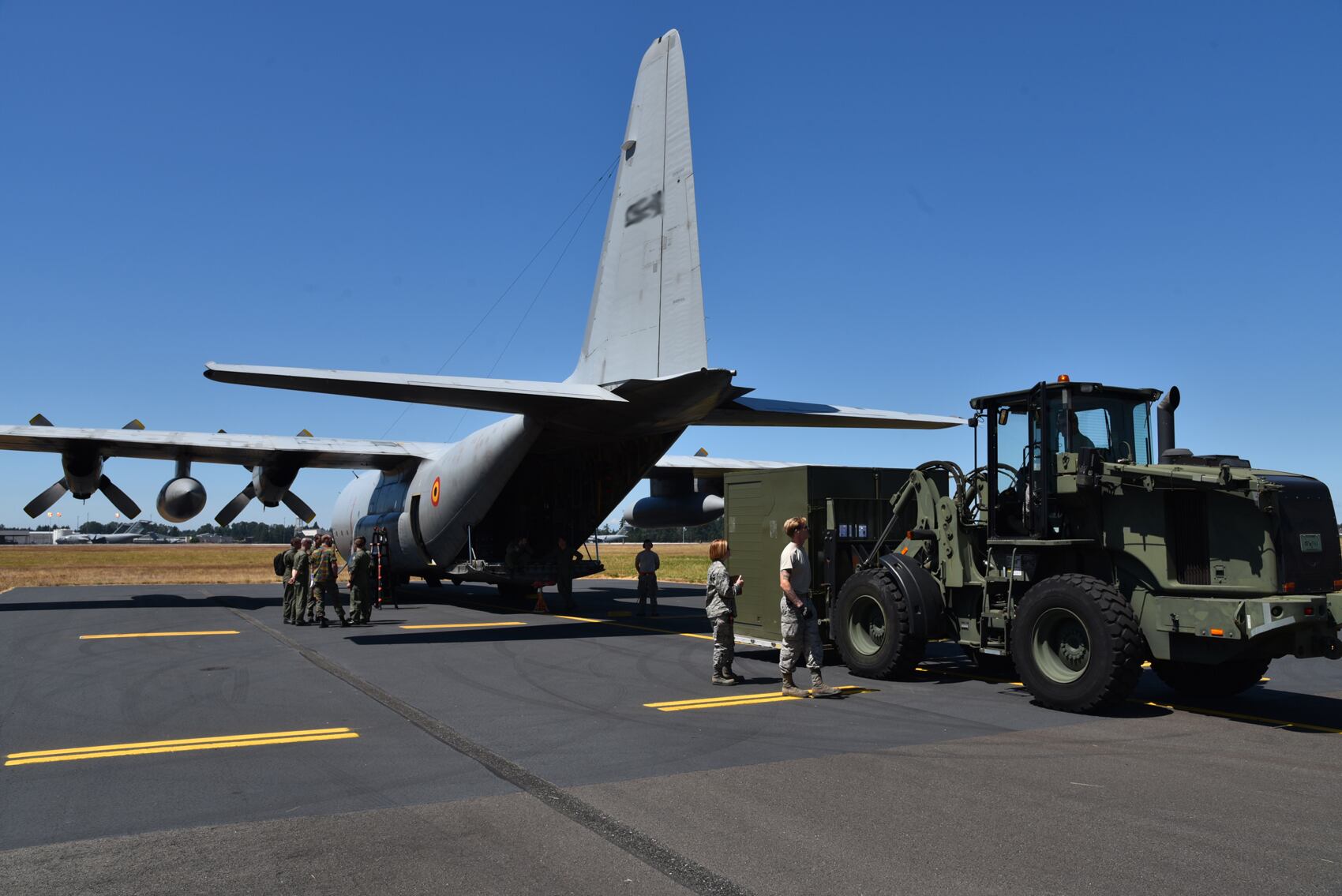
THE FUTURE
When Mobility Guardian ended Aug. 11, Air Mobility Command took the feedback and lessons learned to see what can be tweaked for next time.
Robinson said there will be a debrief in mid-September.
If the command decides to hold Mobility Guardian every year, he said, there would need to be a dedicated squadron to focus its time to planning the exercise.
Having it every other year would provide the time to build it correctly and give other units and nations the time to participate, he said.
“Operational success requires mobility airmen to work together as part of a joint and international team,” Gen. Carlton Everhart, AMC‘s commander, said. “Global reach is not a birthright for America. It requires hard work, preparation, investment and training. Mobility Guardian provides the needed training platform to test skills, build the confidence and ensure readiness to succeed in any environment.”
Charlsy is a Reporter and Engagement Manager for Military Times. Email her at cpanzino@militarytimes.com.





